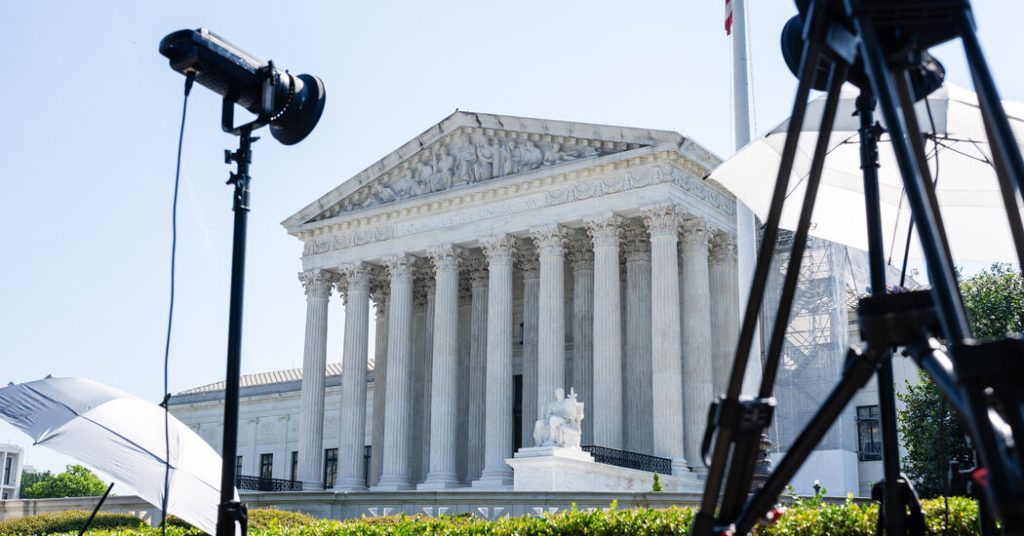The Supreme Court upheld access to the abortion pill in a recent decision, rejecting a challenge from anti-abortion groups and doctors seeking to undo the FDA’s approval of the drug, mifepristone. Justice Brett M. Kavanaugh, writing for the unanimous decision, stated that the plaintiffs lacked a direct stake in the dispute and therefore could not challenge the FDA’s approval. While abortion rights groups praised the decision for maintaining access to the pill, they warned that the outcome could be temporary as anti-abortion groups may seek other avenues to challenge the drug.
Despite the muted victory for abortion rights groups, the ruling did not address broader restrictions on the pill in states that have passed near-total bans on abortion following the elimination of a constitutional right to the procedure in Dobbs v. Jackson Women’s Health Organization. President Biden noted that the fight for reproductive freedom continues and stressed the significance of protecting women’s rights. The ruling did not change the fact that the Supreme Court overturned Roe v. Wade two years ago, which had a significant impact on women’s fundamental freedoms.
The decision to uphold access to the abortion pill did not provide a clear win for either political party on abortion issues, as the justices dodged a ruling on the substance of the case. Anti-abortion groups vowed to continue pressing the issue, potentially involving other plaintiffs, particularly states, in mounting challenges against the drug. The ruling also brought attention to potential future restrictions on abortion medication, especially if former President Trump wins a second term and enforces new regulations through executive action.
Mifepristone, a key drug in medication abortions, is used in nearly two-thirds of abortions in the U.S. After the FDA relaxed restrictions on the drug during the pandemic, allowing for online prescriptions and mail delivery, its use increased significantly. Justice Kavanaugh’s majority opinion emphasized the lack of standing for the plaintiffs to challenge the FDA’s regulation, highlighting that they did not have a direct connection to the drug or the people involved with it. The decision raised concerns from both anti-abortion and abortion rights groups about future challenges and the potential impact on access to abortion medication.
The ruling on the abortion pill case maintained the status quo but did not address the broader issues surrounding abortion rights in the U.S. While the decision was made on procedural grounds, it reflected the court’s promise to leave the question of access to abortion to the people and their elected representatives. The case highlighted a new battleground in the fight over abortion and set the stage for future legal challenges and debates on reproductive rights in the country. The decision, while significant, did not resolve the larger issues surrounding abortion access and the ongoing debate between anti-abortion and abortion rights groups.








